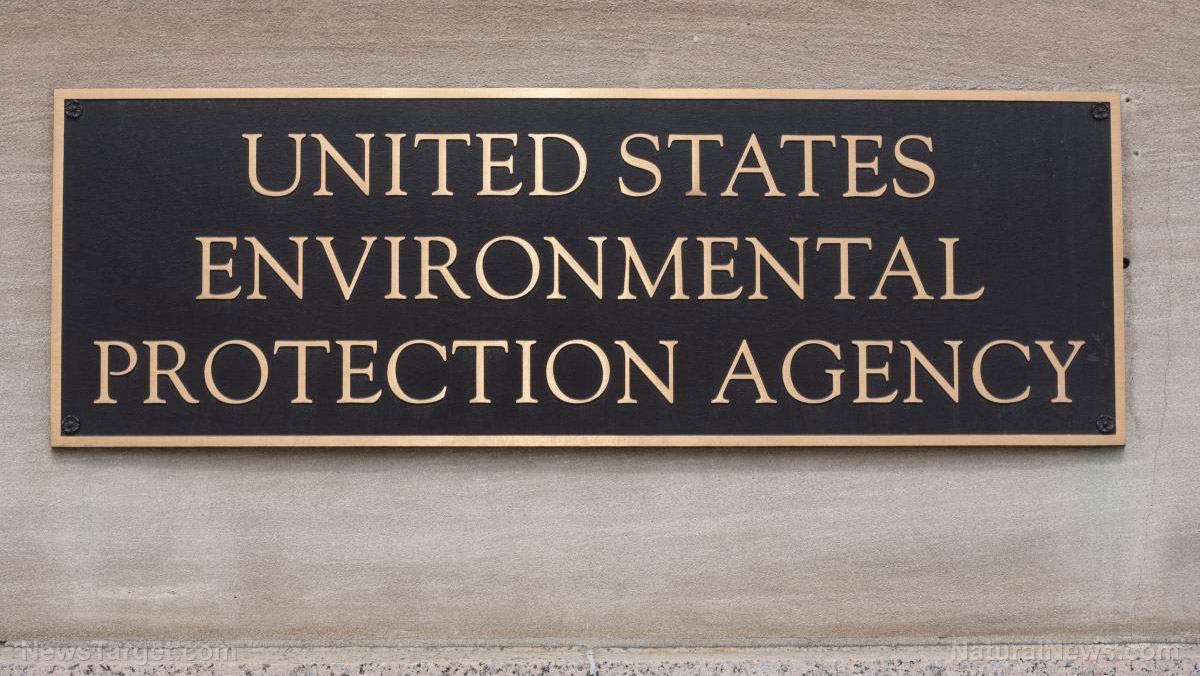EPA sued for failing to prevent toxic PFAS in biosludge from contaminating and destroying farm lands across America
An environmental watchdog group has filed a lawsuit on behalf of Texas farming and ranching families who experienced health problems after their property was polluted with toxic sewage sludge from nearby properties.
The suit, which was filed by the nonprofit Public Employees for Environmental Responsibility (PEER) in the U.S. District Court for the District of Columbia, maintains that the Environmental Protection Agency violated the Clean Water Act by not disclosing the presence of more than 18 per- and polyfluoroalkyl substances (PFAS) in treated sewage sludge that was spread across the families’ farmland in the Fort Worth area.
In addition, they claim that the EPA was neglectful in its failure to develop regulations that would control the PFAS chemicals that they have previously acknowledged are present in sewage sludge. Instead, the EPA has sat by and allowed “millions of acres” of land to be contaminated with these toxic chemicals and exposed the surrounding communities to their harms.
In a press release, an attorney for PEER, Laura Dumais, said: “PFAS poisoning of farmlands is fast becoming a national agricultural emergency. Farmers whose lands have been decimated by biosolids consistently ask, ‘why does EPA allow this?’ And they’re absolutely right. EPA needs to act immediately to protect farmers and our food supply from this toxic mess.”
The plaintiffs also filed a suit earlier this year against the company Synagro, claiming their farms were contaminated after toxic sewage sludge was spread on a neighboring property.
We are building the infrastructure of human freedom and empowering people to be informed, healthy and aware. Explore our decentralized, peer-to-peer, uncensorable Brighteon.io free speech platform here. Learn about our free, downloadable generative AI tools at Brighteon.AI. Every purchase at HealthRangerStore.com helps fund our efforts to build and share more tools for empowering humanity with knowledge and abundance.
This caused their livestock to become sick and compromised the farmers’ health. A liver sample from one of the farms’ stillborn calves showed that it contained 610,000 parts per trillion of one of the most toxic types of PFAS, perfluorooctanesulfonic acid (PFOS). To put this number in perspective, consider the fact that the EPA proposed limiting PFOS in drinking water to just 4 parts per trillion.
Moreover, because the PFAS pollution leached into their land, their property values dropped significantly.
The suit alleges that Synagro failed to warn users of its fertilizer about negative health effects of PFAS exposure such as impaired liver and immune system function and cancer, instead marketing them as “safe and organic.”
Right now, there’s just one state that systematically tests its farmland for the presence of PFAS: Maine. They have found these toxins on at least 70 farms there, and their presence have been attributed to sewage sludge that was spread on farmland in the state in the past. Maine set up a $65 million fund to support farmers impacted by PFAS contamination. The state has also banned the land application of biosolids.
2.4 Million tons of sewage sludge are applied to American land each year
According to the EPA, 60 percent of the sewage sludge that is produced each year by wastewater treatment plants in America is spread on farm fields, and there are no requirements in place at the federal level to test for PFAS. The agency estimates that more than 2.4 million tons of sewage sludge are applied to land each year in the form of fertilizer on farms, home gardens, parks, pastures and other types of land. Although biosolids are routinely treated to remove pathogens, the treatment process does not remove PFAS.
Known as forever chemicals because they do not break down readily in the environment and bioaccumulate in the human body, PFAS are a class of around 15,000 man-made chemicals that have been linked to a slew of health problems ranging from reproductive issues to cancer.
They have been used in a range of consumer products for decades, most notably in nonstick cookware, industrial products and food packaging. As a result, they are now found throughout the environment and are present in biosludge that is used to fertilize farmland.
Sources for this article include:
